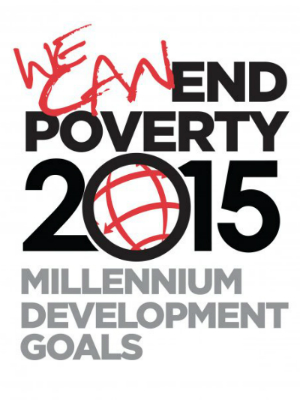Focus
Ending poverty

With the Millennium Development Goals now just over a year away from their 2015 deadline, the process of designing their successors is taking another important step forward in New York. Under the theme of The Post-2015 Development Agenda: Setting the Stage, delegates at this month’s meeting of the U.N. General Assembly are looking at what the MDGs have achieved so far and discussing what comes next.
For almost a decade-and-a-half, the MDGs have shaped the development agenda, built support for poverty reduction and set concrete goals for measuring progress. There have been impressive achievements: The goal of halving the number of people living in absolute poverty has already been met, and there has been progress in other areas, including reductions in mortality among mothers and the under-fives, improvements in school enrolment for both girls and boys, and a lowering in the rate of HIV infection. But, overall, much still needs to be done if the world is to meet all the MDGs.
What comes next? The MDGs expire in 2015, and a major effort is under way to design their successors, drawing in a wide range of voices – governments, development experts, civil society and many others. The OECD, too, is playing a role, just as it did in the creation of the original MDGs.
As its contribution to the post-2015 process, the OECD has identified a number of elements for the future development agenda. Among them is a two-tiered approach whereby high-profile global goals are supplemented by national targets that better reflect each country’s needs. The OECD also believes that development goals should embrace the full range of factors that determine well-being, including human rights, gender equality and sustainable development. And it believes that goals must be both meaningful and measureable, which underlines the importance of building statistical capacity in developing countries.
Read more
- The OECD is increasing its efforts to ensure the MDGs are met and is supporting the UN’s efforts to develop a post-2015 framework. – OECD and post-2015 reflections
- The Development Co-operation Report (DCR) is the annual OECD reference for analysis and statistics on international development co-operation. The 2013 DCR will explore what needs to be done to achieve rapid and sustainable progress in the global fight to end poverty. – Deleted from DCD Root
- A global, holistic, measureable and meaningful approach can help move the development agenda forward. – Towards an OECD contribution to the post-2015 agenda
- Even Bono agrees – we need a data revolution to ensure we can measure where we’re making progress and where we’re falling behind. – Measuring development goals
- Global goals are vital, but national targets can help countries meet their own diverse needs. – Wanted: captains, pilots and mates to navigate to post-2015
- More and more children are going to school, but that doesn’t always mean they’re learning. Could a PISA for Development programme help? – What did you learn in school today?
- The OECD helped pioneer the MDGs and has played a key role in tracking their progress. – OECD and the Millennium Development Goals
Related Documents